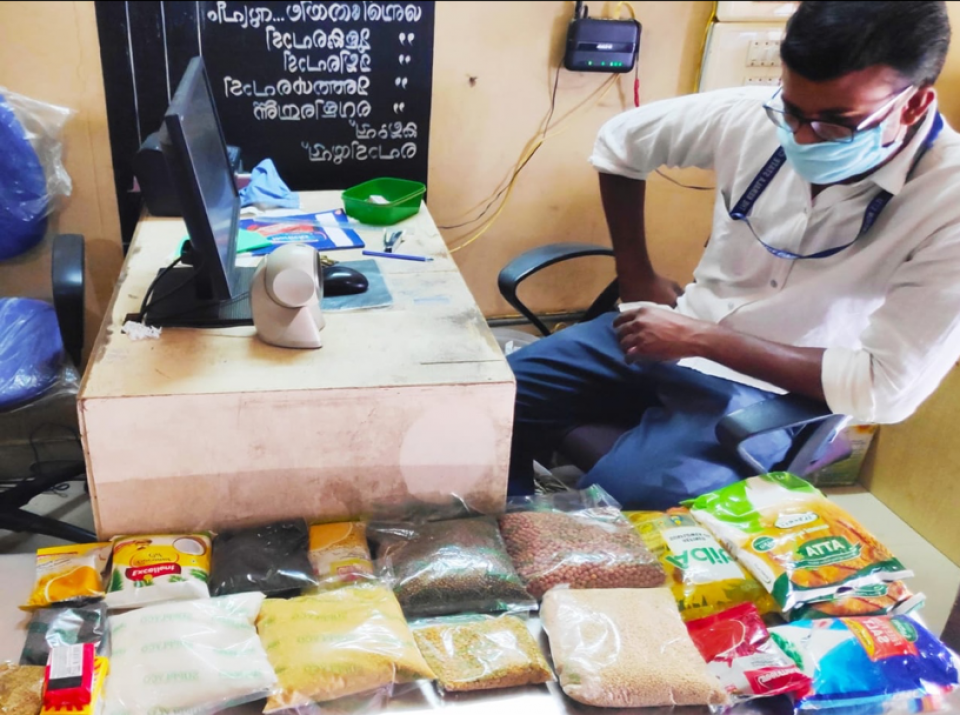09 February 2022
New Tools and Resources—and New Perspectives—for Emergency Food Planning

In the second webinar series in the Food Cities 2022 Learning Partnership, we explored emergency food planning—a timely topic that builds on the broader food strategy context provided in the first webinar series. It was motivated by the pandemic, as cities everywhere scrambled to address unprecedented food insecurity and food supply chain issues during the pandemic. Cities were unprepared and their responses were often slow and insufficient.
Our lead consultant, The Feeding Cities Group, took a novel approach in structuring the webinar series based on the knowledge that a ‘one-size fits all’ approach to emergency food planning is not sufficient. Different ‘shocks’ or disasters drive different sets of food system problems, which in turn require unique solutions. The webinar series explored emergency food initiatives in the context of four different crises:
(1) Pandemics
(2) Refugees and migrants
(3) Natural disasters
(4) Conflict
The webinar series plainly demonstrated the universality of emergency food crises. The five-part webinar series, presented over the past three months, featured an incredible group of over 20 speakers that included experts in emergency food planning from the FAO, WFP, C40, Milan Urban Food Policy Pact and RUAF as well as practitioners from across the world leading emergency food initiatives locally. The diverse set of topics clearly resonated with cities in both the global south and north, with webinar participation from hundreds of city leaders across the world.
A curated set of dedicated resources for the Food Cities 2022 Learning Platform was also developed. The resources—research, media articles, reports and videos—provide additional context for a deeper understanding of the topics presented during each webinar. New content—a series of very accessible case studies called Tactics to Try—highlight proven emergency food responses in a format that offers practitioners the most essential points for trying something similar in their own city.
View the entire series and all resources here.
The Tactics to Try for webinars one through four include the following:
- Voluntary Sector Mobilization for Efficient Food Distribution in Birmingham, UK
- Municipal-Level Strategies for Sustainably Feeding Refugees in Gaziantep, Turkey
- Planning for Catastrophic Events with Lessons Learned from Puerto Rico
- Using a Global System for Monitoring and Multisector Engagement for Addressing Food Insecurity in Yemen
The final Tactics to Try—A Roadmap for Creating Your City’s Emergency Food Response And Recovery Plan—synthesizes key learnings from the webinar series as well as the resources curated for the Learning Platform. The purpose of the roadmap is to catalyze more cities to create their own emergency food response and recovery plans. It provides important guidance for cities both exploring and starting down the planning path. And although this is only a starting point, and cities will need additional resources and expertise to make their plans a reality, it is a tangible tool cities can pick up for reference.
We have compiled them into a single resource to provide insight, information and inspiration for cities worldwide, as they plan for recovery, response and resilience against both acute and chronic food emergencies. This can be found via this link:
TACTICS TO TRY FOR EMERGENCY FOOD PLANNING: Building knowledge and momentum for Emergency Food Planning
“This powerful collection of case studies details how cities coped when they faced emergencies which left their citizens facing severe food insecurity. Throughout the series we saw the importance of data, networks and resources. We hope these Tactics To Try will provide practical information and ideas for cities to harness these three key elements as they create plans for emergencies, ultimately leading to food in the hands of people in need.”
Anna Taylor, Executive Director, The Food Foundation
As we reflect on all that was learned during the webinar series—and all that remains to be done—we hope the webinar series and resources catalyze more cities to create their own emergency food response and recovery plans. We also hope government authorities and international organizations will push the dialogue further, providing additional tools and forums, to support cities in this important endeavor.



